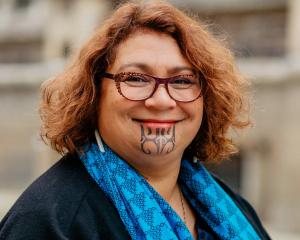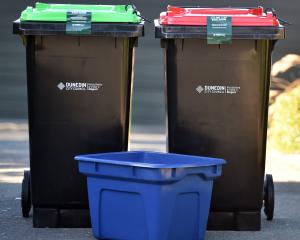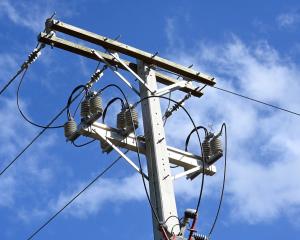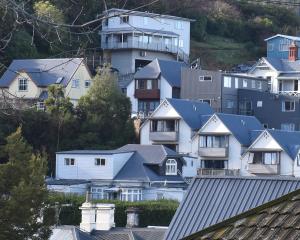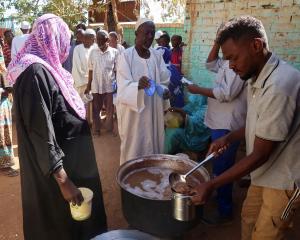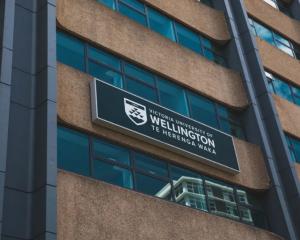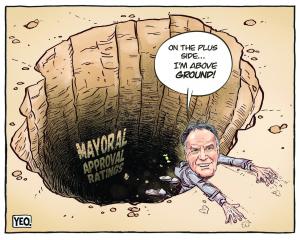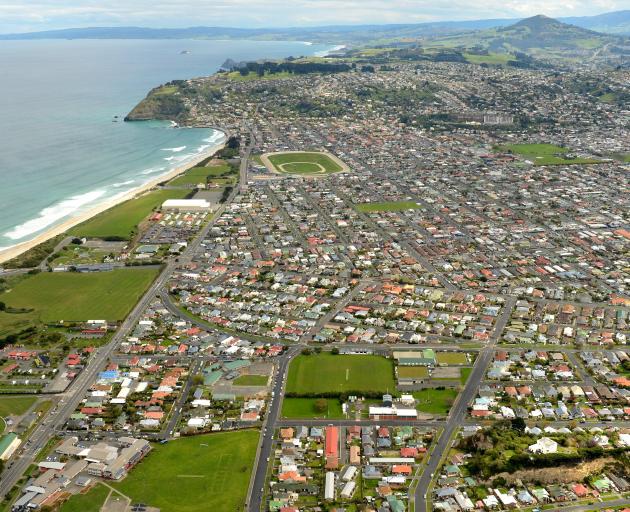
It's midway through the electoral term and as member of Parliament for the southern half of Dunedin I periodically take soundings with those I represent on what they're thinking and feeling about government and about their city.
At the beginning of this year, I surveyed the Dunedin South Electorate to find out what issues are most important. A letterbox survey drop resulted in almost 800 responses, which has given me a snapshot into what half the city is thinking.
Many people don't differentiate between local and central government policies and actions, so it was not unexpected that many Dunedinites referenced local issues of most concern to them. Given the local government elections are swiftly approaching, I urge all those standing to pay attention to the views expressed.
The Dunedin Hospital rebuild was the number one issue for the city named across the electorate and, while the Government is on track with the rebuild, the most mentioned factor now is the speed.
Interestingly, the reinvigoration of Hillside Workshops was the second-most important issue. A huge landmark in South Dunedin, Hillside workshops has the potential to once again become an engineering hub for the region - particularly given the Government's increased investment in rail as a driver of economic development and jobs through the freight network, tourism and passenger services.
Housing-related issues are rife throughout the electorate, with consistent mentions of affordability, availability and quality of housing. One respondent described the housing situation as "frightening and real". Another said the future "looks bleak" for their children (18 and 23 years old), with little chance of them ever owning their own home.
Most people who responded are benefiting from the Winter Energy Payment: an extra, automatic payment made during winter months to pensioners and beneficiaries to assist them with the cost of heating. This takes extra stress away from these people, and allows them to have a warm home without worrying about the cost.
General awareness of the Government's policies is relatively high, with policies such as banning single-use plastic bags, re-entering Pike River, increasing the minimum wage, the introduction of the Winter Energy Payment, and banning overseas speculators being widely known.
There was lower awareness of the benefits for Dunedin of the Provincial Growth Fund, the Government's investment in more state houses and transport funding for the region.
South Dunedin and surrounding areas were particularly concerned about drainage and coastal infrastructure, as well as the recurring issue of flooding. South Dunedin residents are vocal in their support of keeping a KiwiBank/NZ Post shop open in their area. This was also echoed in the responses from those living in Mosgiel.
Andersons Bay and the surrounding suburbs have issues with public transport. Although this falls under the responsibility of local government, it's certainly an issue that I'd like to see some action on. Smaller, more regular buses, and the option to travel without going via the Bus Hub were noted in many comments. Mobile coverage was also identified as an issue in this area, with many properties receiving no, or only low cellular reception. In our flood and tsunami-risk areas, adequate mobile coverage is of utmost importance and is an issue I'm following up on.
People living on the Otago Peninsula cited rising sea-levels, climate change and more predator-free initiatives as priorities. The effect of tourism on the ecology and infrastructure of the peninsula was also mentioned.
The suburbs of Corstorphine, Concord and Kew felt housing affordability was the most important issue, with one person seeking an affordable rental for over 11 months. Public transport was also a concern.
In the Green Island-Abbotsford area, the water treatment plant and landfill site are primary issues, while odours from various sources were mentioned by multiple respondents. People are keen to see more investment in local infrastructure and business, and on the whole seem quite happy with the recent addition of roundabouts to the area.
Waldronville, Ocean View and Brighton residents said public transport and coastal erosion were their biggest concerns. As in other areas, smaller, more regular buses, and lower fares were all suggested in comments.
The largest issue on the Taieri Plain is, by far, the quality of drinking and river water.
After the recent connection of Mosgiel to Dunedin City drinking water, many people have reported skin and stomach complaints, as well as concerns about the taste and colour of the water.
As those who live there know, given the Taieri is prone to flooding during heavy rain, flood mitigation and protection is an ongoing issue. And some want to see mining cease on Saddle Hill, one of Dunedin's most recognisable landmarks.
The largest concern for people living in Middlemarch was also water quality, with locals wanting to see a collaborative approach to ensuring water quality. And again, housing affordability, availability and quality were consistently mentioned.
It's worth noting that the proposed establishment of a Centre of Digital Excellence and the redevelopment of the Steamer Basin ranked as the least-important issues for residents surveyed.
In the former it could be argued that most Dunedin people don't know enough about the Centre for Digital Excellence to back it. For the Steamer Basin harbourside proposal, that's not such good news.
I thank all those who responded to the survey. Your views matter.


